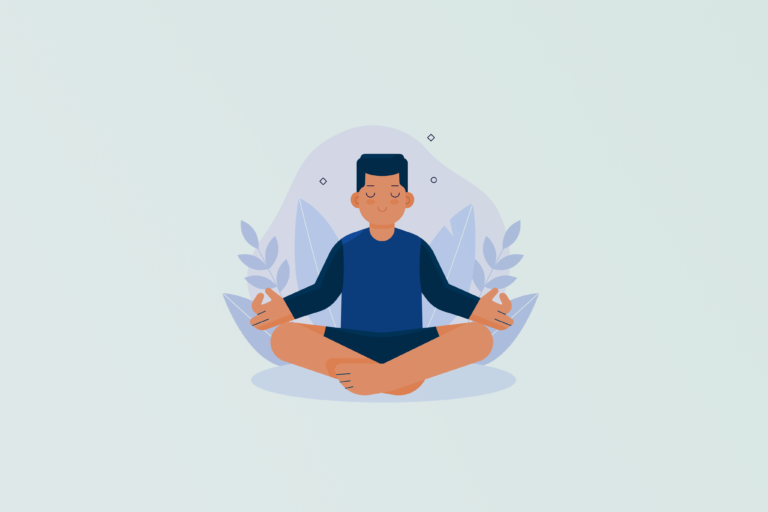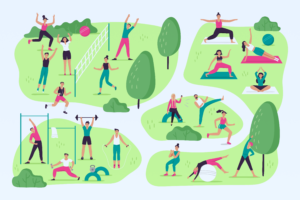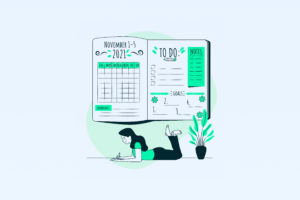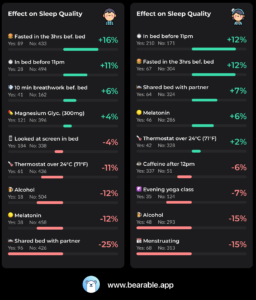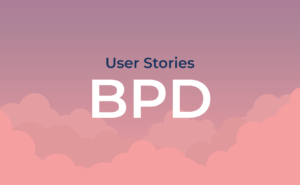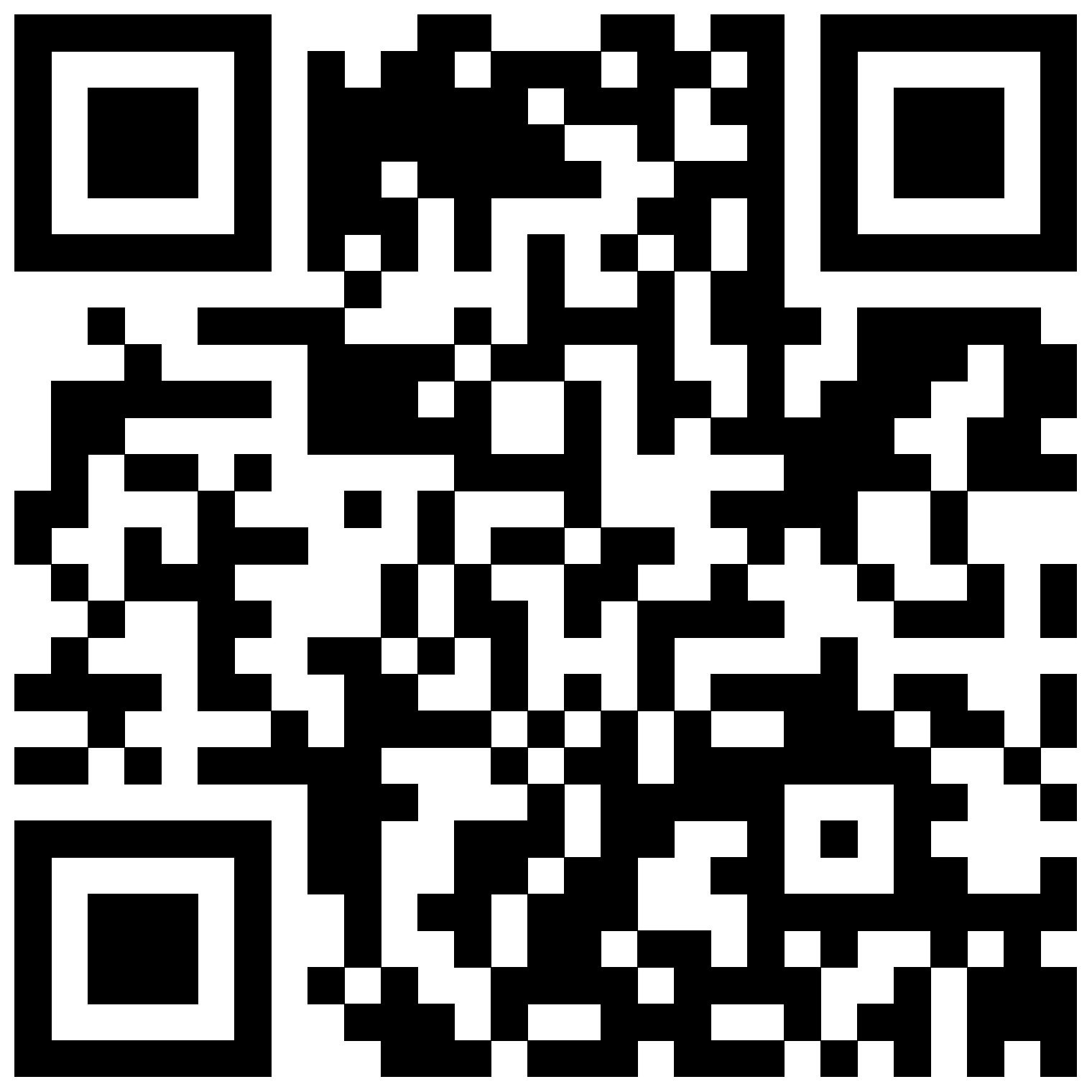For most of my adult life, I’ve been interested in personal development. Interested in trying new things that can accelerate my personal growth, improve my health, and optimize my daily routine.
In fact, the personal development market is forecast to be worth $56 Billion by 2027. So, chances are that if you’re reading this then you’ve watched School of Life videos on Youtube or read a book about Stoicism.
It’s important for me to point out that the major factor influencing my interest in personal development has been the desire to manage the symptoms of my General and Social Anxiety, Depression, Insomnia, and BDD (Body dysmorphic disorder).
Or at least to make up for the impact that symptoms of these conditions have on my personal and professional life. For example, I once tried body-language techniques to make up for my low self-esteem at work. Which had mixed and sometimes hilarious results.
Yet, despite this interest in personal development, and not to mention that I also grew up in a home where meditation was practised. I didn’t meditate for the first time until I was 30.
I don’t think I’m alone in having tried meditation for the first time in the last few years. A 2018 study by the CDC found that meditation was the fastest growing health trend and had tripled its popularity from 2012 to 2017.





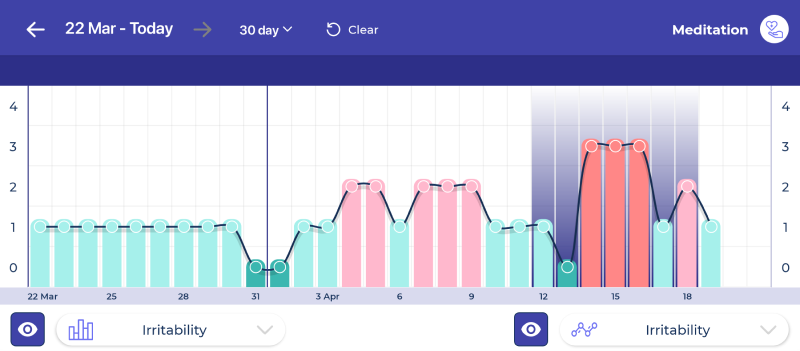
A chart showing how my Irritability symptom scores increased during the period I was meditating.
Why I waited until now to see if Meditation can help with Anxiety.
For the longest time, I viewed meditation as a spiritual practice and this initially made me push away from it. I imagine this might be a common issue and – though totally anecdotal – I have often found that my male friends are more reluctant to give meditation a try for similar reasons. Whilst meditation is historically a spiritual practice, the aims of meditation have always been rooted in mindfulness. To aid with concentration, attention, and awareness. These are the same reasons why the National Health Service (NHS) and National Institute for Health and Care Excellence (NICE) now recommend using meditation as a way to help mental wellbeing and depression. Free guided meditation apps like Medito and Headspace have also made meditation incredibly accessible to people that might not be ready to go to a meditation centre. So, considering my desire to continue to find ways to help tackle the symptoms of my anxiety. I no longer had any excuses to ignore the possibility that meditation might be able to help me. Especially as Bearable takes the guesswork out of whether or not a new habit might be having an effect on my health.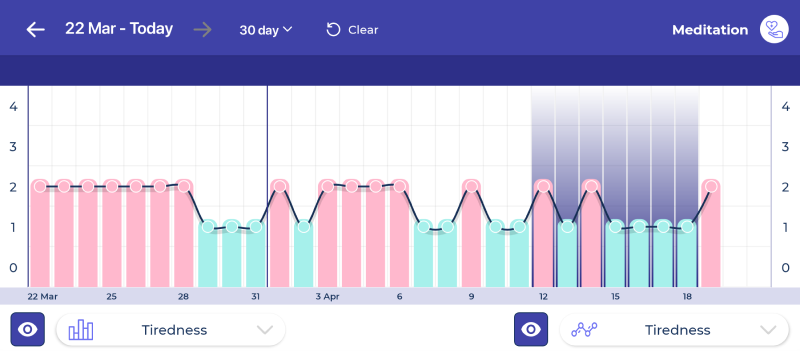
A chart showing how my Tiredness symptom scores were lower during the period I was meditating.
What did I expect the benefits of Meditation to be?
Whilst I have meditated once or twice before, the habit never stuck. I found it to be calming but hadn’t really considered that it might help with my mental health in a more tangible way. So something that had specifically caught my eye when reading about meditation was a quote on the NHS website.The prospect of helping me to recognise when my anxious thoughts take over gave me optimism that – if nothing else – meditation might give me some objectivity. The ability to recognise when I was catastrophizing or feeling a lot of self-doubt. Similarly, I read that some people have even suggested that meditation may have played a role in the most recent stages in human biological evolution, specifically in the development of attention and working memory. So I quietly hoped that meditation might also help me with my poor attention span. This meant that going into day one, I felt that meditation had the potential to positively impact some of the symptoms of my anxiety and general mental health. Specifically, I hoped it might help me with:“Mindfulness also allows us to become more aware of the stream of thoughts and feelings that we experience … This lets us stand back from our thoughts and start to see their patterns. Gradually, we can train ourselves to notice when our thoughts are taking over…”
-
- A lack of focus and concentration
- Negative thoughts related to self-doubt
- Behaviours related to having nervous energy
- Catastrophic thoughts
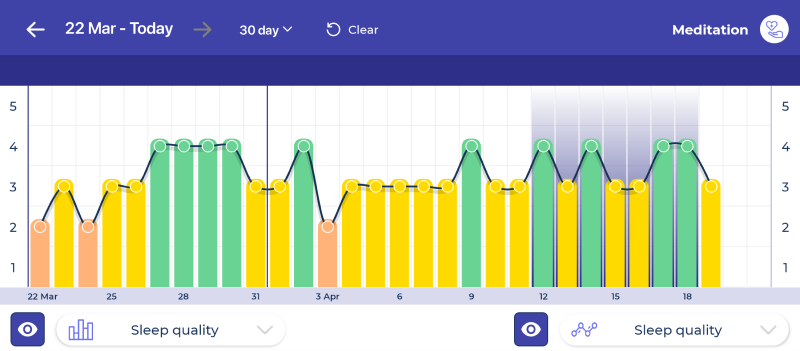
A chart showing how my Sleep Quality scores improved slightly during the period I meditated.
Tracking 7 Days of Meditation
I began this test on Monday 12th April and meditated for 30 minutes each day. I’d log my symptoms in Bearable in the morning, meditate at lunchtime and then log my symptoms again later in the day. Day One: I initially struggled to relax into the first 30-minute meditation. My mind wandered all over the place. I felt calm afterwards but this didn’t last for long. Day Two: My mind still wandered a lot but I was able to relax and enjoy the experience more. It was a nice break from a lot of anxious thoughts I’d had that morning. I got frustrated that these thoughts came back almost immediately after finishing the meditation. Day Three: In the morning, I was able to recognise my negative thought patterns and looked forward to meditating. I enjoyed the meditation but felt like it had little benefit other than giving me a moment of calm. My mood also seemed to vary more – I was often more irritable – and I wondered if this was somehow because of the meditation. Day Four: I noticed that meditation was having a positive impact on reducing my heart rate. I also began using the time immediately after meditating to try to plan my afternoon so that I might feel less anxious about it. Day Five: I was feeling a higher amount of self-doubt ahead of some meetings. I wished I could meditate all day, as an escape from those feelings. After meditating I used the time to be objective about my day and re-organized my afternoon to give me more time to prepare. Day Six: Following a bad night’s sleep I’d had a lot of catastrophic thoughts. I meditated early in the morning and it helped to give me some perspective. I didn’t feel like meditation was having a long-lasting effect on my symptoms but also recognised that it was because I wasn’t solving the root cause of those problems: giving myself too much to do every day. Another common tactic used by people with Anxiety to try to prove themselves to others. Day Seven: This was the day I felt least anxious and the only day I didn’t feel I needed to meditate. I reflected on how meditation had helped to give me perspective over the last 7 days. I ended up meditating to help me to fall asleep.
A report showing how my Meditation affected my Symptoms.
What Did Bearable Tell Me About the Effect of Meditation on my Health?
My Average Mood score improved by 11% and I was more likely to report feeling Optimistic, relaxed, or Good. However, I was also more likely to report feeling Grumpy or Stressed on these days as well. My Average Symptom score – across all of my symptoms, not just anxiety – improved by 18% My Sleep Quality score improved by 8% though my average Sleep Quantity only improved by 1% How Meditation affected the Symptoms of my Anxiety:-
- 25% reduction in Tiredness
- 31% reduction in Doubting the Value Of My Contribution
- 39% reduction in Insomnia
- 56% reduction in Self Doubt
- 52% reduction in Catastrophic thoughts
- 11% reduction in Nervous Energy
-
- 40% increase in Picking my skin
- 16% increase in Questioning past conversations
- 12% increase in Irritability

A chart showing a decrease in my total symptom score that correlates with the days that I Meditated.
How Do I Think Meditation Has Helped With My Anxiety?
During the seven days, I initially found meditation a bit frustrating. It was useful to take a break from anxious thoughts in the moment, but it annoyed me that the positive effect wore off almost immediately. Beyond this – and until I had data to show me how wrong I was – I couldn’t really perceive any real impact on my symptoms. Though it took a few days, I eventually realised that my expectations had been wrong. The real issue was that I wasn’t resolving the underlying cause of the symptoms of my anxiety. Meditation couldn’t fix this by itself. However, by taking the time after meditating to plan my work schedule, I was able to have a more positive impact on my symptoms. In fact, I think that much of the extreme shift in my symptom scores most likely comes as a result of these changes rather than the meditation itself. Though I couldn’t have achieved this without gaining some objectivity by meditating in the first place. Ultimately, the main benefit I was able to perceive was that because of the reflective nature of meditation I was able to be more objective about myself, my thoughts, and my actions. I could take a step back from my usual, anxious train of thought and make adjustments if I needed to.How Meditation Can Continue To Help With My Anxiety
I don’t think I’ll continue to meditate every day but I will continue to meditate when I feel it might help me. For example, when I feel overwhelmed by my day or am struggling to be objective about my thoughts. As with many of the habits that I’ve tried in an attempt to better manage my mental health. I’ve found that there are different tools, tricks, and practices that can serve a specific purpose.-
- Breathing techniques help me if I’m nervous about speaking to people
- Positive affirmations help me if I wake up feeling hopeless
- Intermittent fasting helps to tackle my insomnia

